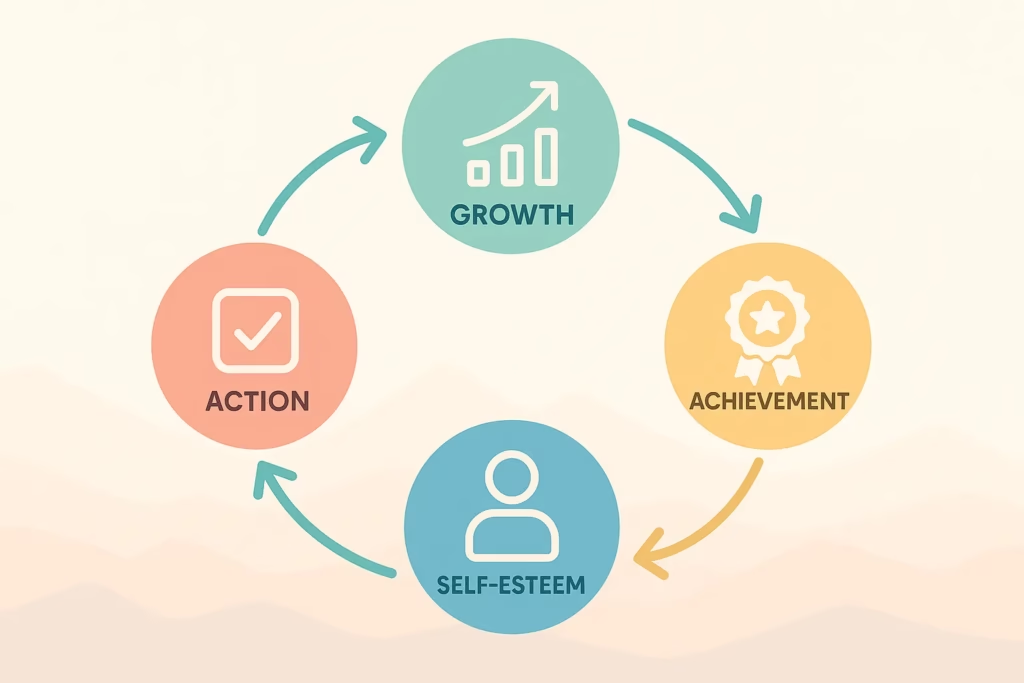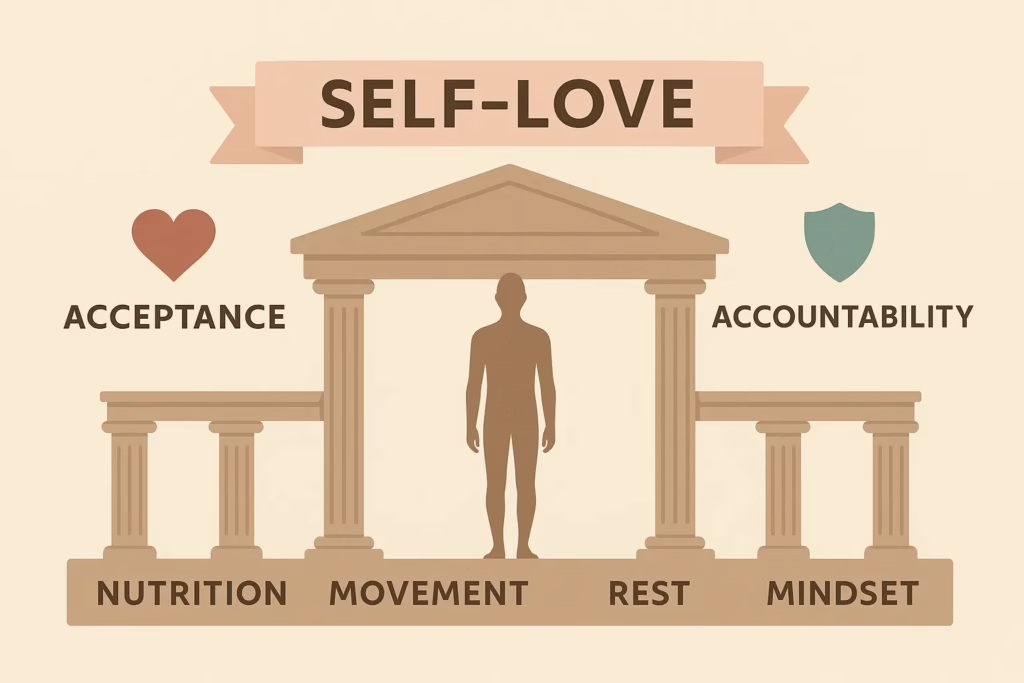Self‑esteem and confidence sound like twins, but psychology treats them as cousins at best. Confidence is task‑specific— “Can I lead this salsa turn?”—and rises or falls with each skill you practise.
Self‑esteem is global; it’s the silent verdict you pass on your whole self, even when no one’s watching. In this post I’ll show why strengthening that deeper foundation—your self‑esteem—pays bigger dividends in relationships, wellbeing and long‑term success.
We’ll start with a quick house metaphor, then walk through five evidence‑backed steps to raise the inner walls that really hold your life together.
The Concept of Self-Esteem
Self‑esteem is one of the most important notions in psychology. I used to think, “I’m confident, so I must have high self‑esteem,” but the concepts of self‑esteem and confidence are not one and the same.
Confidence is the belief that you can do something specific. For instance, I have confidence in my swimming ability and confidence that I can improve it. Confidence is local, and high confidence can lead to great success. It is a ‘local’ concept.
Self‑esteem, on the other hand, is a more global notion than confidence—it’s the overall judgement you place on yourself.
A fair analogy of confidence is that it’s like the way each room in a house is decorated. Self‑esteem is more like the foundations and load‑bearing walls that hold the house up.
Decorations please other people, but most folks never think about the structure that keeps the house standing. As you invite people deeper into your world, though, they inevitably glimpse that inner framework.
Improving your self‑esteem is therefore critical for long‑term relationships, overall life satisfaction and beyond.
Self-Love a History
Self‑love isn’t new. The Ancient Greeks had a word for it—philautia—and praised it when rooted in character, not ego. In the East, Taoism and Confucianism also taught that being in tune with yourself was key to thriving with others.
In the 20th century, psychologists like Abraham Maslow and Carl Rogers zoomed in on the idea. Maslow spoke of self‑actualisation—becoming your best self—while Rogers argued that unconditional self‑acceptance is step one to true growth.
The Beat Generation and the ’60s hippie movement then pushed self‑love into the mainstream as something radical and liberating.
By the 2000s, psychologist Martin Seligman launched the positive‑psychology wave, backing up ideas like self‑compassion with data. Loving yourself wasn’t just good—it was research‑approved.
Recently, critics argue the message has drifted. Time magazine and The Atlantic warn that brands sometimes turn self‑love into ego‑boosting or complacency.
The takeaway? Self‑love works only when it’s balanced with growth, humility and genuine connection—an idea I unpack further in this follow‑up post.
The Ideal You
Here’s a quick five‑minute exercise anyone can do.
Write down 5–10 qualities you want to embody.
Here are mine as an illustration:
- I am decisive
- I am loyal to those close to me
- I have integrity
- I have great self‑awareness
- I am a moral person
After listing these out, split the page: on the left, jot daily actions that align with your statements; on the right, note habits that don’t.
If the right‑hand column dominates, chances are your self‑esteem needs work—your idea of what’s “esteemable” is far from how you act.
1. Do Esteemable Things
Start by taking actions that match your ideal self‑concept. The bonus? You’ll likely amplify achievement too, creating a positive feedback loop that reinforces growth.
Even starting by doing something simple like making your bed everyday can help you build self-esteem.

2. Take Pride in Your Good Sides
Whilst you must note where you fall short, also celebrate your strengths. Even a hardened criminal has redeeming traits; find the parts of yourself you wouldn’t trade for the world.
Graciously receiving praise is essential for healthier self‑esteem. Instead of deflecting, simply say, “Thank you, I appreciate that,” and let the compliment sink in.
3. Take Care of Your Body and Mind
The self‑love movement shines when it encourages genuine care, but it can drift into normalising unhealthy habits. True self‑respect means treating your body like a temple—something I explore more in this post on movement, meditation and well‑being.

4. Set Small, Achievable Goals
Your ideal self may feel distant right now. Break that vision into small wins. Goals should always be SMART—Specific, Measurable, Achievable, Realistic and Time‑bound.
Setting goals has not been my strength in life so far, but I’m improving. Each time I set and follow through on a meaningful goal, I build trust in my own ability to take action and follow through. That sense of accomplishment reinforces a more stable, positive self‑concept.
5. Meditate
I’ve recently committed to meditating regularly and found it boosts my self‑esteem.
I focus on a mindfulness tool called “noting,” which helps me recognise feelings as they arise—without judgment.
Conclusion
Elevating your self‑esteem won’t make every obstacle disappear, yet it’s a pivotal piece of the puzzle. No matter how extensive your accomplishments, cultivating genuine self‑respect can be the missing link that carries you from success to true self‑actualisation.


